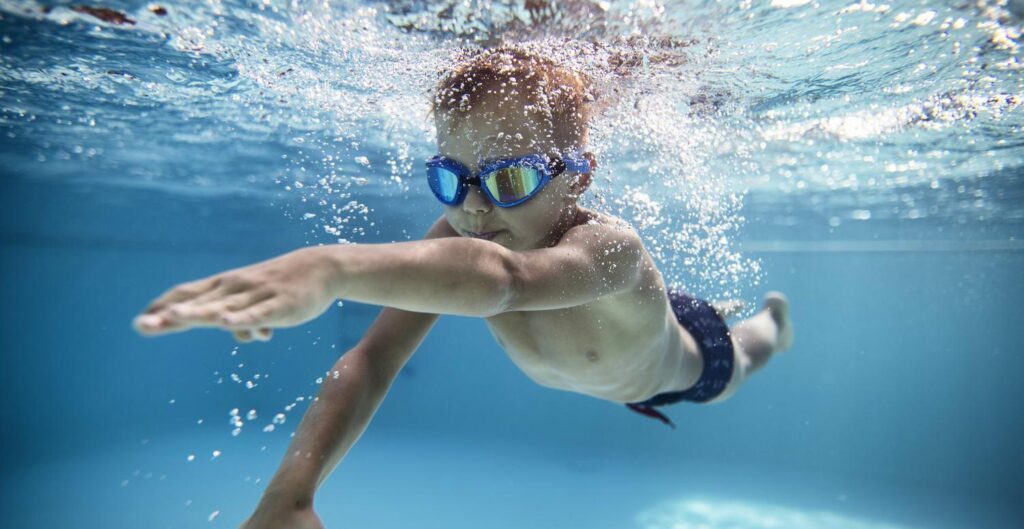As concerns over child safety and early development grow, experts increasingly emphasize the importance of teaching young children essential life skills from an early age. One such skill gaining widespread attention is swimming. With summer just around the corner and water-related activities on the rise, parents are urged to consider enrolling their children in swim lessons well before they start kindergarten. Here are five compelling reasons why early swimming education can be a crucial step in ensuring your child’s safety, health, and confidence.
Health Benefits and Physical Development Gained Through Early Swimming Lessons
Early swimming lessons offer young children a unique blend of physical exercise and developmental benefits. The engaging environment of the pool encourages the strengthening of core muscles and improves cardiovascular health, all while promoting coordination and balance. This aquatic activity stimulates motor skills faster than many land-based exercises, as water resistance naturally supports and challenges a child’s movements, enhancing endurance and flexibility from a tender age.
Key health and development advantages include:
- Improved lung capacity and respiratory function
- Enhanced gross and fine motor skills
- Boosted sensory integration and spatial awareness
- Early muscle tone development and joint flexibility
| Physical Attribute | Swimming Impact |
|---|---|
| Muscle Strength | Increases with low-impact resistance |
| Endurance | Enhanced through continuous motion |
| Flexibility | Improved via varied stroke techniques |
| Coordination | Sharpened by rhythmic arm and leg movements |
Enhancing Safety Skills Critical for Preschoolers Near Water
From family outings to community pools, water environments are inevitable in early childhood. Equipping young children with foundational water safety skills significantly reduces the risk of accidental drowning, one of the leading causes of injury-related deaths in preschoolers. Early swim lessons foster not just the ability to stay afloat, but also critical awareness and respect for water hazards. Simple commands like “stop,” “stay close,” and “call for help” become second nature, enabling children to react calmly and intelligently in potential emergencies.
Key safety skills acquired before kindergarten include:
- Basic floating and treading water techniques
- Safe entry and exit strategies around pools and shorelines
- Recognizing dangerous water conditions and avoiding them
- Understanding the importance of adult supervision
- Developing confidence to reduce panic in water-related situations
How Swimming Boosts Cognitive Growth and Social Confidence Before Kindergarten
Engaging in swimming activities from an early age stimulates not just physical growth, but also sharpens young minds. The rhythmic movements and coordination required in swimming have been linked to enhanced neural development, particularly in areas related to memory, attention, and problem-solving. Children who swim regularly exhibit better cognitive flexibility, allowing them to adapt and learn new concepts quickly once they enter school. Moreover, the sensory experience of water promotes brain activities that support spatial awareness and motor skills essential for early learning milestones.
Beyond intellectual advantages, swimming fosters an enriched social environment where young children gain confidence through interaction and play. Group swimming lessons encourage cooperation, turn-taking, and communication-skills that lay the groundwork for healthy social relationships before kindergarten. As children master new swimming techniques and receive positive reinforcement, their self-esteem grows, translating to greater ease in classroom settings. These combined benefits make swimming an invaluable activity that nurtures both mind and heart in the critical years leading up to formal education.
In Summary
In today’s increasingly water-centric world, ensuring that children develop swimming skills early on is more than just a recreational advantage-it is a vital step toward safety, confidence, and overall development. As highlighted, teaching your child to swim before kindergarten not only reduces the risk of drowning but also promotes physical health, social interaction, and cognitive growth. Parents and caregivers are encouraged to consider swim lessons as an essential part of early childhood education, laying the foundation for a lifetime of benefits both in and out of the water.





